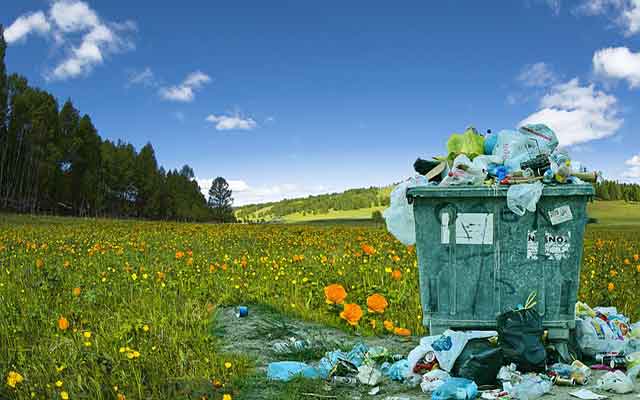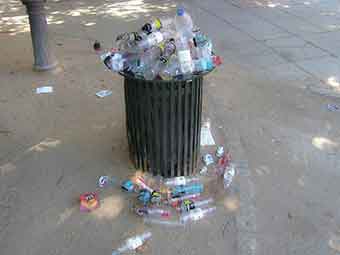.
Benefits of Recycling: Protect the Environment
The Importance of Recycling: A Sustainable Future
Reading time: 1 minute, Discovery Chepe Id-356-ECO
Published on 08-11-2024

Recycling helps conserve natural resources, such as water and forests.
Garbage recycling is the process of converting waste into new materials that can be reused. It is an important way to reduce pollution, save natural resources and protect the environment.
Recycling helps the environment in several ways:
1- Reduces the need to extract natural resources. Extracting raw materials to make new products requires a large amount of energy and natural resources, such as water, minerals and fossil fuels. Recycling helps reduce the need to extract these resources, which helps protect the environment and ecosystems.
2- Reduces pollution. The production of new products generates air, water and soil pollution. Recycling helps reduce this pollution by preventing new products from being produced from virgin raw materials.
3- Reduces greenhouse gas emissions. The production of new products also generates greenhouse gases, which contribute to climate change. Recycling helps reduce these emissions by preventing new products from being produced from virgin raw materials.
The Importance of Recycling: A Sustainable Future

We can contribute to recycling in several ways, both at home and in the community.
At home:
1- Separate waste correctly. This means separating recyclable materials, such as paper, cardboard, glass, plastic and metals, from organic waste, such as food and garden scraps. In most cities, recyclable waste is collected in different colored containers.
2- Wash and dry the containers before recycling them. This helps remove food scraps and other debris that could contaminate other recyclables.
3- Avoid buying products with unnecessary or single-use packaging. For example, opt for reusable glass or cardboard containers instead of single-use plastic containers.
Compost organic waste. Composting is a natural process that converts organic waste into fertilizer. This helps reduce the amount of waste going to landfill and provides a natural fertilizer for plants.

In the community:
1- Support recycling initiatives in your community. This may include participating in community recycling programs, such as e-waste collection or textile recycling.
2- Educate others about the importance of recycling. Talk to your friends, family and neighbors about the importance of recycling and how they can contribute.
Some additional tips for recycling:
1- Find out about recycling programs in your community. Each community has its own rules and regulations regarding recycling. Find out what can be recycled and how to do it correctly.
2- Check the product labels. Many product labels indicate whether the materials are recyclable.
3- Be patient. Recycling is not a perfect process. Sometimes recyclables can become contaminated or not be accepted by recycling centers. If this happens, don't be discouraged. Keep recycling and doing your part to help the environment.
All the small actions we take to recycle can make a big difference. By recycling, we help reduce pollution, save natural resources and protect our environment.




